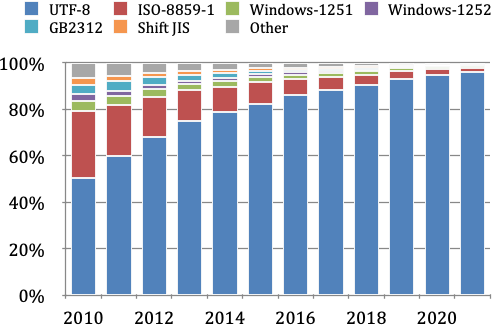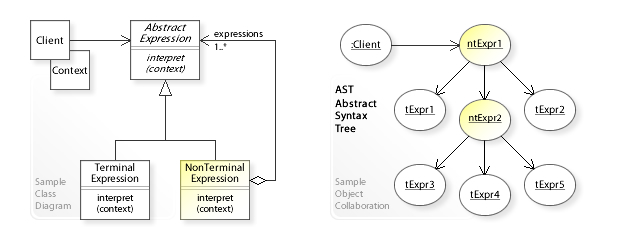|
TADS
Text Adventure Development System (TADS) is a prototype-based domain-specific programming language and set of standard libraries for creating interactive fiction (IF) games. History The original TADS 1 was released by High Energy Software as shareware in 1988, and was followed by TADS 2 not long after. From the late 1980s to early 1990s, free development tools such as TADS and Inform enabled amateur communities to create interactive fiction. In the mid-1990s, TADS was a top development tool for interactive fiction. At the time, it was a more improved tool for parsing and world building than existing systems like AGT (Adventure Game Toolkit). TADS 2 syntax is based on C, with bits of Pascal. TADS 2 has been maintained and updated at regular intervals by its creator, Michael J. Roberts, even after it became freeware in July 1996. Graham Nelson, creator of Inform, describes Inform and TADS as the "only two systems... widely used" in the last half of the 1990s, and TADS has ... [...More Info...] [...Related Items...] OR: [Wikipedia] [Google] [Baidu] [Amazon] |
Interactive Fiction
Interactive fiction (IF) is software simulating environments in which players use text Command (computing), commands to control Player character, characters and influence the environment. Works in this form can be understood as literary narratives, either in the form of Interactive narratives or Interactive narrations. These works can also be understood as a form of video game, either in the form of an adventure game or role-playing video game, role-playing game. In common usage, the term refers to text adventures, a type of adventure game where the entire interface can be "Text mode, text-only", however, graphical text adventure games, where the text is accompanied by graphics (still images, animations or video) still fall under the text adventure category if the main way to interact with the game is by typing text. Some users of the term distinguish between interactive fiction, known as "Puzzle-free", that focuses on narrative, and "text adventures" that focus on puzzles. Due ... [...More Info...] [...Related Items...] OR: [Wikipedia] [Google] [Baidu] [Amazon] |
Inform
Inform is a programming language and design system for interactive fiction originally created in 1993 by Graham Nelson. Inform can generate programs designed for the Z-machine, Z-code or Glulx virtual machines. Versions 1 through 5 were released between 1993 and 1996. Around 1996, Nelson rewrote Inform from first principles to create version 6 (or Inform 6). Over the following decade, version 6 became reasonably stable and a popular language for writing interactive fiction. In 2006, Nelson released Inform 7 (briefly known as Natural Inform), a completely new language Natural language programming, based on principles of natural language and a new set of tools based around a book-publishing metaphor. Z-Machine and Glulx The Inform compilers translate Inform code to story files for Glulx or Z-machine, Z-code, two virtual machines designed specifically for interactive fiction. Glulx, which can support larger games, is the default. The Z-machine was originally developed by Infocom ... [...More Info...] [...Related Items...] OR: [Wikipedia] [Google] [Baidu] [Amazon] |
Prototype-oriented Programming
Prototype-based programming is a style of object-oriented programming in which behavior reuse (known as inheritance) is performed via a process of reusing existing objects that serve as prototypes. This model can also be known as ''prototypal'', ''prototype-oriented,'' ''classless'', or ''instance-based'' programming. Prototype-based programming uses the process generalized objects, which can then be cloned and extended. Using fruit as an example, a "fruit" object would represent the properties and functionality of fruit in general. A "banana" object would be cloned from the "fruit" object and general properties specific to bananas would be appended. Each individual "banana" object would be cloned from the generic "banana" object. Compare to the class-based paradigm, where a "fruit" ''class'' would be extended by a "banana" ''class''. History The first prototype-based programming languages were Director a.k.a. Ani (on top of MacLisp) (1976-1979), and contemporaneously and not in ... [...More Info...] [...Related Items...] OR: [Wikipedia] [Google] [Baidu] [Amazon] |
Adventure Game Toolkit
The Adventure Game Toolkit (AGT) is a development system for interactive fiction, text based adventure games. Description It was written in 1987 by David Malmberg, based on Mark J. Welch's 1985 Generic Adventure Game System (GAGS). AGT was produced until 1992, after which time it was released as freeware (the final version is AGT 1.7). AGT was originally built for DOS but has also been compiled for Microsoft Windows, Apple Macintosh, Macintosh, Amiga, and others. Numerous games were created using AGT, mostly in the Interactive fiction, interactive fiction genre but also at least one serious game in the form of an experimental medical simulation.Raenel E. Kinkade, Craig T. Mathews, JoLaine R. Draugalis and Brian L. ErstadEvaluation of a Computer Simulation in a Therapeutics Case Discussion ''American Journal of Pharmaceutical Education'', Vol. 59, Summer 1995, p.147 From 1989 until 1993, Malmberg ran an annual contest for AGT games, a predecessor to the Interactive Fiction Competitio ... [...More Info...] [...Related Items...] OR: [Wikipedia] [Google] [Baidu] [Amazon] |
Prototype-based Programming
Prototype-based programming is a style of object-oriented programming in which behavior reuse (known as inheritance) is performed via a process of reusing existing objects that serve as prototypes. This model can also be known as ''prototypal'', ''prototype-oriented,'' ''classless'', or ''instance-based'' programming. Prototype-based programming uses the process generalized objects, which can then be cloned and extended. Using fruit as an example, a "fruit" object would represent the properties and functionality of fruit in general. A "banana" object would be cloned from the "fruit" object and general properties specific to bananas would be appended. Each individual "banana" object would be cloned from the generic "banana" object. Compare to the class-based paradigm, where a "fruit" ''class'' would be extended by a "banana" ''class''. History The first prototype-based programming languages were Director a.k.a. Ani (on top of MacLisp) (1976-1979), and contemporaneously and no ... [...More Info...] [...Related Items...] OR: [Wikipedia] [Google] [Baidu] [Amazon] |
Text Parser
{{Refimprove, date=August 2007 In adventure games, a text parser takes typed input (a command) from the player and simplifies it to something the game can understand. Usually, words with the same meaning are turned into the same word (e.g. "take" and "get") and certain filler words are dropped (e.g. articles, or the "at" in "look at rock"). The parser makes it easier for the game's author to react on input. The author does not have to write special code to process the commands "get ye flask", "take ye flask", "get flask", "take flask", "take ye precious flask", etc. separately, as the parser will have stripped the input down to something like "take flask". For the player, the game is more flexible, as the game has a larger vocabulary, and there are fewer guess-the-verb and guess-the-noun problems. Parsers are used in early interactive fiction games like the ''Zork'' series, and more recently in games created by systems like Inform Inform is a programming language and design s ... [...More Info...] [...Related Items...] OR: [Wikipedia] [Google] [Baidu] [Amazon] |
UTF-8
UTF-8 is a character encoding standard used for electronic communication. Defined by the Unicode Standard, the name is derived from ''Unicode Transformation Format 8-bit''. Almost every webpage is transmitted as UTF-8. UTF-8 supports all 1,112,064 valid Unicode code points using a variable-width encoding of one to four one- byte (8-bit) code units. Code points with lower numerical values, which tend to occur more frequently, are encoded using fewer bytes. It was designed for backward compatibility with ASCII: the first 128 characters of Unicode, which correspond one-to-one with ASCII, are encoded using a single byte with the same binary value as ASCII, so that a UTF-8-encoded file using only those characters is identical to an ASCII file. Most software designed for any extended ASCII can read and write UTF-8, and this results in fewer internationalization issues than any alternative text encoding. UTF-8 is dominant for all countries/languages on the internet, with 99% global ... [...More Info...] [...Related Items...] OR: [Wikipedia] [Google] [Baidu] [Amazon] |
Exception Handling
In computing and computer programming, exception handling is the process of responding to the occurrence of ''exceptions'' – anomalous or exceptional conditions requiring special processing – during the execution of a program. In general, an exception breaks the normal flow of execution and executes a pre-registered ''exception handler''; the details of how this is done depend on whether it is a hardware or software exception and how the software exception is implemented. Exceptions are defined by different layers of a computer system, and the typical layers are CPU-defined interrupts, operating system (OS)-defined signals, programming language-defined exceptions. Each layer requires different ways of exception handling although they may be interrelated, e.g. a CPU interrupt could be turned into an OS signal. Some exceptions, especially hardware ones, may be handled so gracefully that execution can resume where it was interrupted. Definition The definition of an excep ... [...More Info...] [...Related Items...] OR: [Wikipedia] [Google] [Baidu] [Amazon] |
Compiler
In computing, a compiler is a computer program that Translator (computing), translates computer code written in one programming language (the ''source'' language) into another language (the ''target'' language). The name "compiler" is primarily used for programs that translate source code from a high-level programming language to a lower level language, low-level programming language (e.g. assembly language, object code, or machine code) to create an executable program.Compilers: Principles, Techniques, and Tools by Alfred V. Aho, Ravi Sethi, Jeffrey D. Ullman - Second Edition, 2007 There are many different types of compilers which produce output in different useful forms. A ''cross-compiler'' produces code for a different Central processing unit, CPU or operating system than the one on which the cross-compiler itself runs. A ''bootstrap compiler'' is often a temporary compiler, used for compiling a more permanent or better optimised compiler for a language. Related software ... [...More Info...] [...Related Items...] OR: [Wikipedia] [Google] [Baidu] [Amazon] |
Java (programming Language)
Java is a High-level programming language, high-level, General-purpose programming language, general-purpose, Memory safety, memory-safe, object-oriented programming, object-oriented programming language. It is intended to let programmers ''write once, run anywhere'' (Write once, run anywhere, WORA), meaning that compiler, compiled Java code can run on all platforms that support Java without the need to recompile. Java applications are typically compiled to Java bytecode, bytecode that can run on any Java virtual machine (JVM) regardless of the underlying computer architecture. The syntax (programming languages), syntax of Java is similar to C (programming language), C and C++, but has fewer low-level programming language, low-level facilities than either of them. The Java runtime provides dynamic capabilities (such as Reflective programming, reflection and runtime code modification) that are typically not available in traditional compiled languages. Java gained popularity sh ... [...More Info...] [...Related Items...] OR: [Wikipedia] [Google] [Baidu] [Amazon] |
Porting
In software engineering, porting is the process of adapting software for the purpose of achieving some form of execution in a computing environment that is different from the one that a given program (meant for such execution) was originally designed for (e.g., different CPU, operating system, or third party library). The term is also used when software/hardware is changed to make them usable in different environments. Software is ''portable'' when the cost of porting it to a new platform is significantly less than the cost of writing it from scratch. The lower the cost of porting software relative to its implementation cost, the more portable it is said to be. This is distinct from cross-platform software, which is designed from the ground up without any single " native" platform. Etymology The term "port" is derived from the Latin '' portāre'', meaning "to carry". When code is not compatible with a particular operating system or architecture, the code must be "carried" to ... [...More Info...] [...Related Items...] OR: [Wikipedia] [Google] [Baidu] [Amazon] |
Interpreter (computing)
In computer science, an interpreter is a computer program that directly executes instructions written in a programming or scripting language, without requiring them previously to have been compiled into a machine language program. An interpreter generally uses one of the following strategies for program execution: # Parse the source code and perform its behavior directly; # Translate source code into some efficient intermediate representation or object code and immediately execute that; # Explicitly execute stored precompiled bytecode made by a compiler and matched with the interpreter's virtual machine. Early versions of Lisp programming language and minicomputer and microcomputer BASIC dialects would be examples of the first type. Perl, Raku, Python, MATLAB, and Ruby are examples of the second, while UCSD Pascal is an example of the third type. Source programs are compiled ahead of time and stored as machine independent code, which is then linked at run-ti ... [...More Info...] [...Related Items...] OR: [Wikipedia] [Google] [Baidu] [Amazon] |


